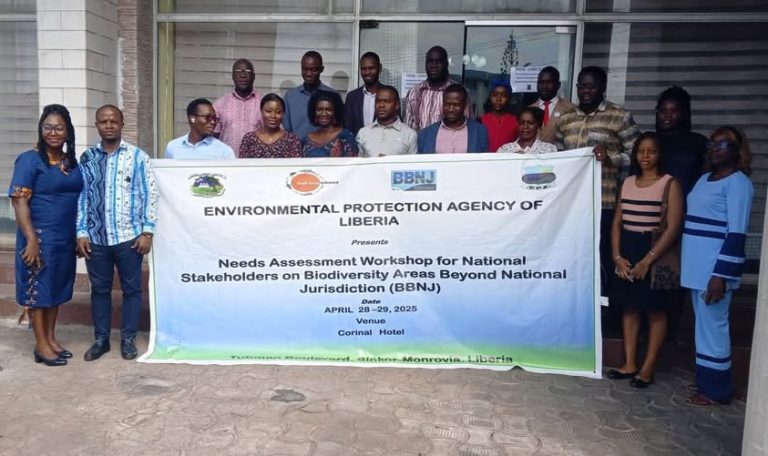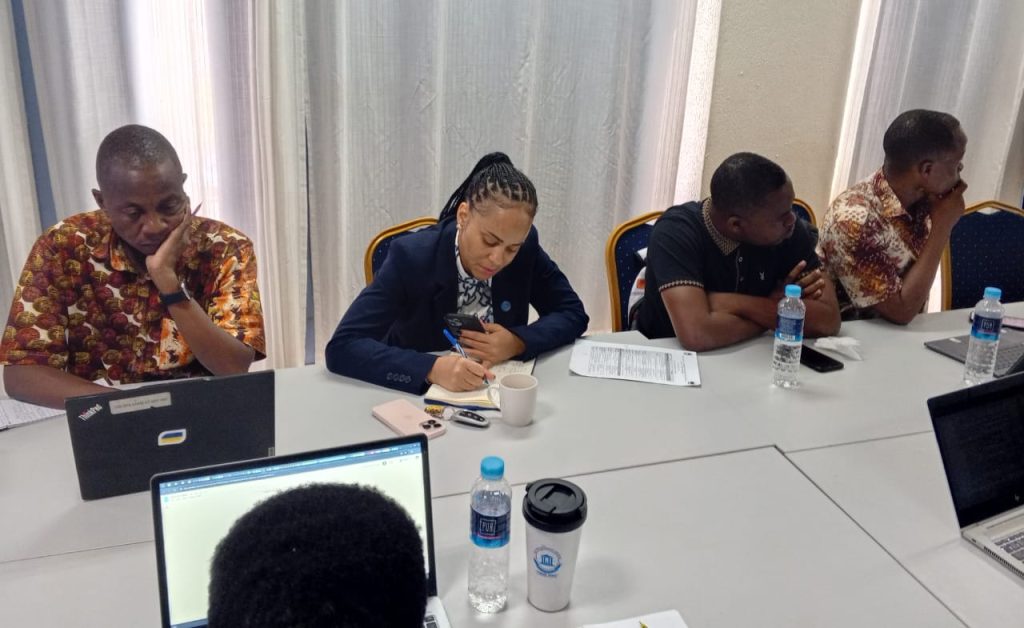Posts Categories
Latest Posts

(Monrovia, April 29, 2024) — The Environmental Protection Agency (EPA) of Liberia has ended a two-day workshop aimed at assessing the needs of national stakeholders regarding the Biodiversity Beyond National Jurisdictions (BBNJ) Treaty.
The workshop, held in Monrovia at the Corina Hotel Conference Hall, brought together key players from various government ministries, universities, and environmental organizations. It focused on identifying stakeholders for the BBNJ Treaty ratification, listening to their concerns and expectations, and helping them understand the importance of the treaty for Liberia’s marine ecosystem.
Speaking on behalf of EPA Acting Executive Director Dweh S. Borley, Arthur R.M. Becker, Director of the Department of Multilateral Environmental Agreements, described the event as a “pivotal consultative workshop.” He said it was a unique opportunity to look at the current state of Liberia’s marine ecosystems and find ways to protect them.
“Biodiversity is the backbone of our ecosystems,” Mr. Becker said, adding that oceans cover more than 60% of the Earth and face serious threats from human activities like overfishing, pollution, and climate change. He encouraged participants to use the workshop as a platform for dialogue and action.

Karishma Pelham-Raad, Assistant Minister for International Organizations at the Ministry of Foreign Affairs, also spoke at the event. She highlighted the benefits of the BBNJ Treaty, including the sustainable use of marine resources, building capacity in marine technology, and promoting international cooperation. She assured her ministry’s full support for the treaty process.
Other speakers included Dr. Emmanuel T. Olatunji from the University of Liberia, who spoke on the relevance of the treaty to Liberia and community-based organizations, and Mr. Austin Wheye from the National Aquaculture and Fisheries Authority, who presented on key institutions involved in the BBNJ process. Joseph Charles, Liberia’s BBNJ national focal point, shared the results of the needs assessment.
The workshop was organized by the EPA with support from the High Seas Alliance and the Environmental Justice Foundation. Participants came from various institutions including the National Aquaculture and Fisheries Authority, Liberia Maritime Authority, Ministry of Mines and Energy, Ministry of Agriculture, Ministry of Foreign Affairs, University of Liberia, United Methodist University, Society for the Conservation of Nature, Conservation International, Fauna and Flora International, UNDP, and FAO.
The workshop’s goal was to gather input from stakeholders that will help shape Liberia’s national policy and legal framework for implementing the BBNJ Treaty.
Key takeaways from the workshop were:
1. All parties agreed that Liberia should ratify the BBNJ Agreement.
The parties recognized that Liberia does not currently have adequate capacity to implement the treaty and will therefore require significant capacity building and Marine Technology Transfer to fulfill its obligations under the BBNJ.
—30—
